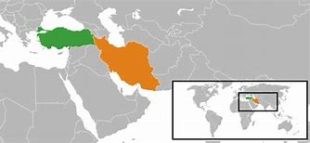RFL/RE – Imprisoned Islamic scholar and civil activist Sedigheh Vasmaghi has been released on bail amid concerns over her deteriorating health after she was moved to a hospital from Tehran’s notorious Evin prison earlier this month.
Her release was reported on April 29 by the Emtadad Telegram channel, which said her state of health had worsened. The news was confirmed by a source speaking to RFE/RL’s Radio Farda.
Vasmaghi, a vocal critic of Iran’s mandatory hijab policy, was initially detained at her home on March 16, on charges of “propaganda against the system in cyberspace” and “public appearances without Shari’a-compliant hijab.”
Doctors had urged for her transfer to a hospital from prison, but officials had refused several times to carry out the move. Her deteriorating health caused her to go blind.
Prior to her release, Vasmaghi penned a letter to a United Nations fact-finding committee detailing her experiences while detained by the Islamic republic, highlighting her wrongful arrest on charges of removing her hijab, or Islamic head scarf, and the subsequent brutal treatment and torture she endured at the hands of state officials.
Vasmaghi underscored in her letter that, despite her blindness, she was repeatedly taken for interrogation without legal representation and was transferred to serve her sentence without undergoing due legal process.
In November 2023, she posted a video on social media where she wasn’t wearing a hijab in defiance of Iran’s strict dress codes for women.
Speaking to RFE/RL’s Radio Farda at the time, Vasmaghi said she regarded her action as a protest against the religious regime’s oppressive policies toward women, and advocated for the right of women to choose their own attire.SEE ALSO:Prominent Iranian Religious Scholar Says Hijab Law Should Be Abolished, Urges Authorities To Stop Inciting Violence
From inside Evin prison, Vasmaghi declared the mandatory hijab policy a failure. In her communication with the UN, she urged international human rights organizations to continue their efforts to hold Tehran accountable for its oppressive actions, particularly against women.
Vasmaghi has also been highly critical of Iranian Supreme Leader Ayatollah Ali Khamenei, calling him a dictator and slamming the country’s “oppressive” leadership.
The death of Mahsa Amini in police custody in September 2022 after her arrest for allegedly improperly wearing her head scarf led to months of nationwide protests that thrust women’s rights and public disapproval of the hijab law to the fore.
Iranian authorities responded by carrying out a violent crackdown that resulted in the deaths of over 500 protesters. They have also implemented a stricter hijab law with harsher penalties and longer prison sentences for those who disobey it.
The fact-finding committee of the UN Human Rights Council labeled these government actions against women as a “crime against humanity.”
 Shabtabnews In this dark night, I have lost my way – Arise from a corner, oh you the star of guidance.
Shabtabnews In this dark night, I have lost my way – Arise from a corner, oh you the star of guidance.



